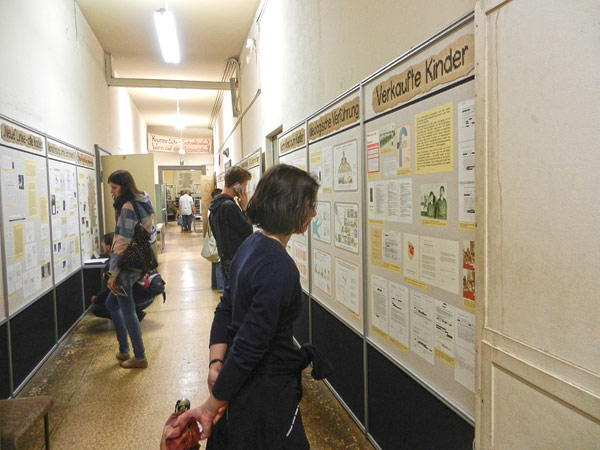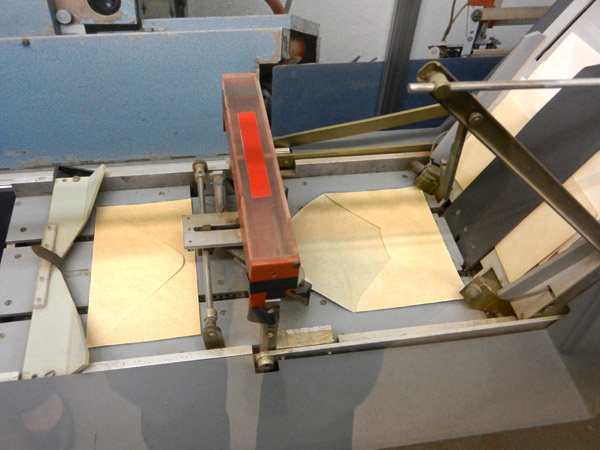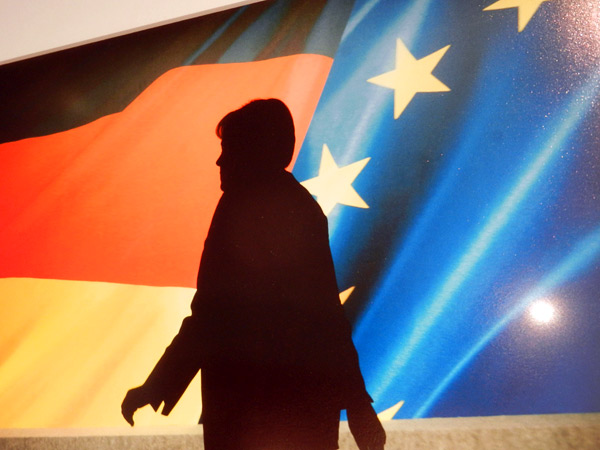Each morning that I'm doing guidebook research, I scramble to get to the hotel lobby to meet my local guide by 10:00. I write until the wee hours and I'm determined to stay healthy and get my beauty rest. Coming down a few minutes late one morning, I apologized to my Leipzig guide.
"Let's not be too German," he said. "It's just a couple of minutes."
On this trip, I've been enjoying several cities that are new to me -- and Leipzig is no exception. Noting all the construction throughout Germany, my guide explained that many of the post-WWII buildings, erected on the cheap in the 1950s and 1960s, are now due for replacement. Western Germans are still paying a "solidarity surcharge" of 6 percent of their taxes for building and rebuilding the East to bring it up to Western standards. Imagine the uproar it would cause if two-thirds of the USA were paying to spiff up the poorest third of our country. But rather than complain about the taxes, Western Germans are more likely to grumble that the former East now has even better streets than the former West.
My guide is a Westerner living in the East. Later that day, we sat down to dinner with his wife, who grew up in the communist DDR (the official name for East Germany). The conversation was fascinating.
There's still a surprising gap between the psyches of the East and West in Germany. My guide said that only about one percent of Germans are in "mixed marriages" between Easterners and Westerners. And more than 20 years after reunification, half of all Western Germans still have never been to the East. His wife added, "Psychologically, people don't want to confront their prejudices." The German government celebrates the "reunion" of East and West. But let's be honest: The East was effectively annexed by the West, on Western terms.

The former headquarters of the Stasi (the East German equivalent of the KGB) is now a museum and an archive where former East Germans can come to explore their files. Nearly everyone had a file. Many today don't want to look into their files to avoid the heartbreak of finding out which of their friends and relatives were informing on them to the secret police.
We talked about the people of Leipzig rising up against the communist government. The government knew that the security forces were likely to sympathize with the people. It was standard operating procedure that border guards and police would work in pairs. That way, if one lost their nerve and didn't shoot, the other would -- or report on the one who didn't.
During those courageous days before the Berlin Wall fell, all eyes were on Berlin, but there was plenty happening in Leipzig -- the second city of the DDR. I remarked how courageous protesters must have been to gather in solidarity inside St. Nicholas' Church, not knowing how the soldiers and police would respond when they went outside. My guide's wife was there, and spoke of leaving the church cupping candles with both hands to let the soldiers know they were unarmed. (Today, this is symbolized by white cobbles scattered among the black ones around the church.) She said people brought their babies and held them in their arms as human shields. Her husband did a double-take -- he'd never heard her admit to that.

During communist times, the government employed a lot of people steaming open letters, reading them, and then resealing them with fancy machines like this. Amazing gear like this fills Leipzig's Stasi Museum.
I never considered the importance of capturing, and then sharing, images of a popular uprising. While plenty of international news cameras were there to broadcast images of Germans partying on top of the Berlin Wall, Leipzig's protests took place mostly at night, under cover of darkness, deep inside East Germany, where it was particularly dangerous to be seen with a camera. Organizers sent one photographer up the church spire, where he got some of the only grainy images of the streets of Leipzig filled with people bringing down their communist regime.
I remember being in West Berlin as a child in 1969. There were riots in the streets. Even as a kid, I was aware that the government effectively bottled it up and didn't let any images be shown on TV. In some ways, if you stage a revolution and nobody sees it, it didn't happen.
As the conversation rolled around to American politics, I complained about how obstructionist I thought the Republicans in our government are these days. She said, "Opposition is good... we've tried government without."
Asking them what they thought of the political discourse in our country, they were both frustrated by how many Americans confuse social programs with "socialism." They were offended that some Americans, who don't really understand how the German health care system works, would use it to make the case that nationalized health care is ineffective and a bad idea. Quite the contrary: These two Germans couldn't imagine an affluent, developed nation without a nationalized, single-payer system.
Their other peeve: They explained how in 1949, the USA and other WWII victors wrote a constitution for postwar Germany, requiring that the country remain non-aligned. Then, after 9/11, President Bush declared, "You are either with us or against us" -- in essence suddenly requiring Germany to become aligned.
Noticing that I'd left the blood sausage on the side of my plate, my friends chided me for not being adventurous. I told them that just the thought of it made me queasy. They said, "What the farmer doesn't know, he doesn't eat."

Germany is working hard and producing more than it consumes with strong leadership. Being here is an inspiration.